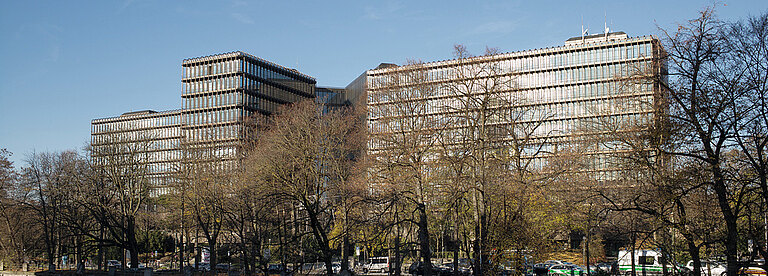Düsseldorf, May 9, 2019 – In their annual report 2018, the Boards of Appeal of the European Patent Office (EPO) have provided a positive interim assessment of their structural reform. Since the entry into force of the reform on January 1, 2017, the technical Boards of Appeal have increased their productivity, i.e. the number of closed appeal proceedings measured by the capacity of the technical members, by 18 percent. The number of closed complaint procedures increased by 22.6 percent. According to the report, all vacancies for technically qualified members were filled in 2018 and a further 23 posts were approved for 2019. The reform also included a transfer of competence from the President of the EPO to the newly created position of President of the Boards of Appeal and the creation of a Boards of Appeal Committee as a subsidiary body of the Administrative Council.
In the past, the EPO had made the headlines partly because of major personnel and structural deficits. The main objective of the reform was to preserve the organizational and administrative autonomy of the EPO Boards of Appeal and to increase their efficiency.
Cohausz & Florack (C&F) welcomes the first results of the structural reform. Partners of the law firm have expressed themselves as follows:
“A healthy degree of self-criticism on the part of the EPO was necessary – and is now noticeable again. With its reform, the EPO has been able to stem the growth in the backlog of cases, and the Boards of Appeal are also developing in the right direction in terms of personnel policy.”
Gottfried Schüll, Patent Attorney and Partner at C&F
“We welcome the efforts of the new President of the Boards of Appeal, Carl Josefsson, to speed up the average duration of appeal proceedings. Only in this way can the backlog of cases caused by vacant positions be counteracted. We regret, however, that although the number of technically qualified members is increasing, the number of chambers is not. This means that in the future a chairperson will be responsible for many technically qualified members and will have to hold many more oral hearings. On the face of it, this should probably counteract the further diversification of case law. In complex pharmaceutical and biotech cases in particular, however, this could lead to a situation in which the chairperson can deal with the cases less intensively than before.”
Dr. Natalie Kirchhofer, Patent Attorney and Partner at C&F
“I take a critical view of the proposed new procedural rules of the EPO Boards of Appeal. In the short term, they may provide relief for the Boards themselves, as they restrict the parties' scope of action in the appeal proceedings even more than before. In a short time, however, this should lead to a prophylactic overloading of the first instance procedure with all conceivable lines of attack or defense in order to preserve as much leeway as possible. The system and its users are probably not served well by this.”
Mathias Karlhuber, Patent Attorney and Partner at C&F; Patent Rapporteur of the IP Commission of the International Chamber of Commerce (ICC)


